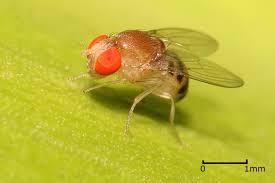 An insulin-regulating hormone that, until now, only had been postulated to exist has been identified by researchers at the Stanford University School of Medicine.
An insulin-regulating hormone that, until now, only had been postulated to exist has been identified by researchers at the Stanford University School of Medicine.
The hormone, called limostatin after the Greek goddess of starvation, Limos, tamps down circulating insulin levels during recovery from fasting or starvation. In this way, it ensures that precious nutrients remain in the blood long enough to rebuild starving tissues, rather than being rapidly squirreled away into less-accessible fat cells.
The researchers first discovered limostatin in fruit flies but then quickly identified a protein with a similar function in humans.
“Starvation or famine is an ancient, ever-present specter faced by all living organisms,” said Seung Kim, MD, PhD, professor of developmental biology. “The ways to deal with it metabolically are likely to be ancient and conserved. This research clearly connects the dots between flies and humans, and identifies a new potential way to regulate insulin output in humans.”
In particular, members of a family with an inherited mutation in the human analog of limostatin exhibited many of the same physiological characteristics as flies genetically engineered to be unable to produce limostatin — namely, high levels of circulating insulin, low blood sugar levels and a tendency toward early onset obesity.
A paper describing the research findings was published in Cell Metabolism. Kim is the senior author, and graduate student Ronald Alfa is the lead author.
The metabolic dance
Insulin is a key player in the complicated metabolic dance shared by nearly all organisms. Its importance can hardly be overstated. After a meal, animals and humans produce insulin in response to the increase in blood sugars that occur as a meal is digested. This insulin stimulates the storage of circulating sugars into muscle and fat cells for future use. Too little insulin, or an inability of the body to respond correctly to its signal, causes a dangerous spike in blood sugar levels. Conversely, too much insulin can cause a rapid drop. Both conditions can be life-threatening, and ongoing swings in blood sugar levels can lead to complications, such as blindness, poor circulation and kidney failure.
“This work has critical ramifications for our understanding of metabolism, and has the potential to transform our approach to treating diseases like diabetes,” said Domenico Accili, MD, director of the Columbia University Diabetes and Endocrinology Research Center and Columbia’s Russell Barry Foundation Professor of Diabetes.
“The discovery of limostatin, a new hormone that can act to decrease insulin release, is an important advance,” added Accili, who was not involved with the research. “The notion that mammals express a related family of intestinal hormones that can affect insulin secretion may inform new efforts to find drugs that combat diabetes in humans.”
http://www.medicalnewstoday.com/releases/288946.php?tw




